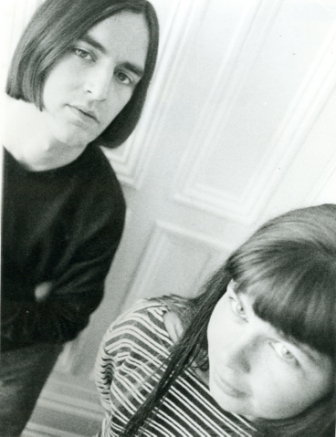“I have trouble sleeping,” admits Ådne Meisfjord, the vocalist/guitarist/keyboard player for the Norwegian electronic band 120 Days. “If I’m not drunk, I have to read 100 pages before I sleep.”
It’s not uncommon for Norwegian natives to become a bit sleep-deprived. Like any other place adjacent to the Arctic Circle, at the beginning of summer there are days, weeks, when the sun never completely sets. It may disappear beyond the horizon, but the night sky still exudes natural light that is bright enough to read a book by. No wonder Meisfjord has his nose in a book when the midnight sun is shining.
One such book that Meisfjord read was the Marquis de Sade’s 120 Days of Sodom, an extremely explicit, sadistic story about four wealthy men who lock themselves in a castle with prostitutes and kidnapped children and sexually abuse, torture, mutilate, and ultimately kill their captives over five months time.
“It’s kind of disturbing,” he says. “It leaves its mark on you, and you’re not the same person as before.”
Although 120 Days’ music is not perverse or ultraviolent like 120 Days of Sodom, it is terrifically dark—much like the winter nights in Norway. 120 Days are a motorik Krautrocking electronic beast, fueled by synths, a drum machine, a buoyant bass, and a resounding guitar that throbs with a percussive hypnosis like that of Neu!. Meisfjord’s bone-chilling voice is reminiscent of Spacemen 3’s Jason Pierce and Primal Scream’s Bobby Gillespie on their most euphoric high, and you can hear Meisfjord’s struggles with sleeping, escaping, and soul searching.
On the group’s debut self-titled album, leadoff track and single, “Come Out (Come Down, Fade Out, Be Gone),” catapults the listener along a postapocalyptic Mad Max/Lost Highway journey, speeding down a desolate road on a cold, dark night, which can also be heard on “C-Musik.” Sings Meisfjord, “It’s just like cars on the highway, speeding through the night.” On “Sleepwalking,” the guitar echoes the elegance of the Edge’s fretwork, if only the Edge played with Alan Vega and Bernard Sumner, instead of Bono and those other wankers. “Sleepless Nights,” the album’s sole instrumental track, is minimalist and sedative, fitting right in with the Cluster or Harmonia set. Closing out the album is the 11-and-half-minute-long “I Lost My Vision (Kraut Nr1),” which captures the rhythmic beauty and essence of the band.
120 Days haven’t always been called 120 Days. When Meisfjord and three schoolmates formed the band in their small hometown Kristiansund in 2001, they were known as the Beautiful People, a name they kept for a couple years.
A year later, the four packed their things and headed for Oslo. But things were not so easy for the small-town boys. “Oslo is the most expensive city to live in in the world,” says Meisfjord. “We had to find someplace that was very cheap, so we moved into a motor home. It was very tight. There was no electricity.” For nearly six months, the band huddled together before giving up and moving into more conventional spaces. “We needed electricity,” he says.
Living in Oslo opened the band’s eyes and ears to new things. “There were more record shops. We got into Krautrock, house music, and a lot of electronic,” says Meisfjord.
By 2004, the band had fully adopted the electronic Krautrock sound, released a couple EPs, and begun playing large festivals in Norway and the U.K., where Vice first took notice of the group’s potential. Now with the release of their debut full-length, they are in the midst of their first North American tour.
“I think that our live set is much more intense, more violent,” says Meisfjord. The thought of Meisfjord thrashing around the stage brings me back to 120 Days of Sodom. Judging from the positive reviews of their recent New York shows, it’s quite possible that 120 Days will leave its mark on you, and you won’t be the same as before.
Let’s just hope Meisfjord is well rested when he hits the stage.






